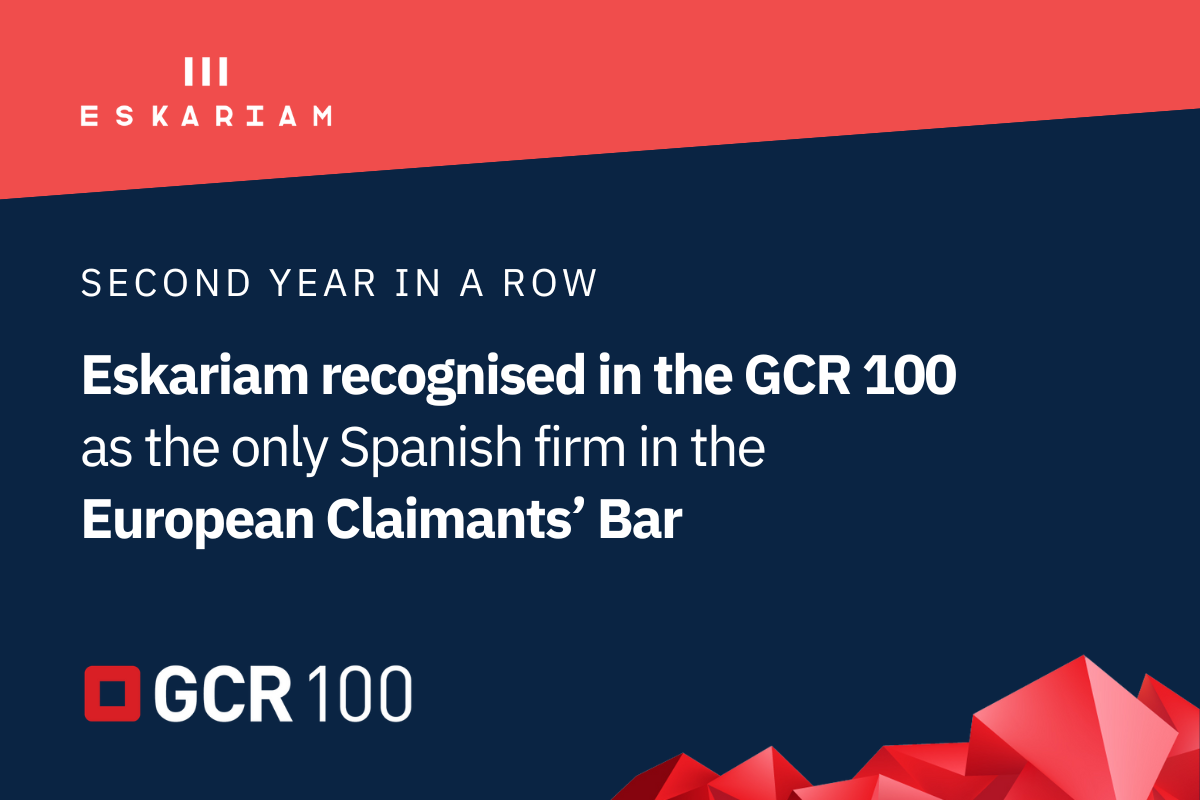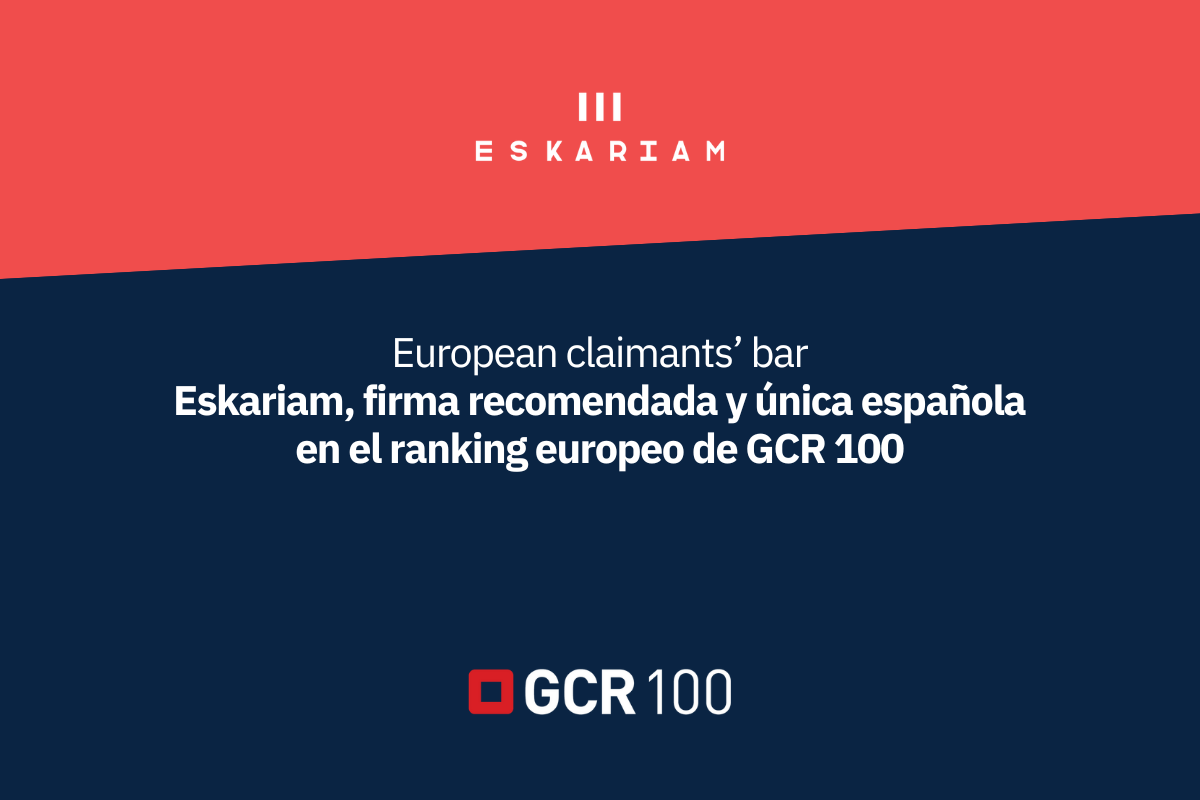CJEU ruling against Booking.com strengthens hoteliers’ claims after CNMC’s sanctioning decision

In its judgment announced on 19 September, the CJEU confirms that the broad and narrow parity clauses that Booking.com B.V. includes in its contracts with hotels do not constitute ancillary restrictions, and therefore do not fall outside the scope of the possibility of being declared unlawful under competition law.
Equipo ESKARIAM
- This judgment reinforces the strength of the claims of the more than 10,000 hotels affected by abuses arising from the dominant position of Booking.com B.V. following the CNMC’s decision to impose sanctions.
The Court of Justice of the European Union (CJEU) has issued a judgment published today, 19 September 2024, confirming that the parity clauses imposed by Booking.com B.V. in its contracts with hotels do not constitute ‘ancillary restraints’ to the agreement between Booking and the Hotel, and can therefore be declared unlawful as contrary to competition law.
The so-called parity clauses, by which the hotel could not offer its rooms at a lower price than the one offered by Booking.com, could be ‘broad in nature’, i.e. the limitation applied to all booking platforms, including the hotel’s own or third party sales channels; or they could be ‘narrow in scope’, preventing the hotel from being able to offer better conditions on its own website.
The CJEU considers that both broad and narrow clauses are neither objectively necessary for the main transaction of providing online hotel reservation services nor proportionate in regard to the objective pursued by that transaction. Consequently, such clauses may be declared unlawful by the national courts, as they are not justified. The Court adds that the broad clauses may reduce competition between the various hotel booking platforms and that they entail a risk of exclusion of small platforms and newcomers.
This ruling is undoubtedly a new blow for Booking, in addition to the expected claims for damages from Spanish hotels that can claim against Booking.com for damages suffered as a result of the infringements of abuse of dominance found by the CNMC in its recent ruling.
Booking.com’s conduct has seriously affected competition and the revenues of hotel establishments in Spain for years. Initially, broad parity clauses were declared unlawful by German courts, but Booking.com continued to apply narrow parity clauses starting in 2015. A group of German hotels joined forces to sue Booking.com B.V. for damages caused by these clauses. However, the digital booking giant went ahead and brought a defensive claim (negative declaratory judgment of infringement and damages) before the Dutch courts.
In this context, the Dutch Court decided, following the admission of the claim, to refer a question to the CJEU for a preliminary ruling on whether the broad and narrow parity clauses are to be considered an ancillary restriction in the context of Article 101(1) TFEU and has today delivered its long awaited judgment.
This decision joins Booking.com’s recent designation as gatekeeper under the Digital Markets Law, which also obliged it to eliminate these clauses, and considerably reinforces the sanctioning resolution of the National Commission for Markets and Competition (CNMC) of 29 July 2024 for abuse of dominance between 2019 and 2024 and the imposition of the historic fine of 413 million euros.
Right to claim from aggrieved hotels
In Spain there are more than 10,000 hotels affected by the anti-competitive practices carried out by Booking.com which, following the CNMC’s decision, can bring their claims for damages suffered for so many years as a result of such behaviour, and which now see how the CJEU strengthens and consolidates their claims.
Thus, any hotel located in Spain that has offered its rooms on the Booking.com platform by signing an adhesion contract, from 2019 and 2024, could have suffered a claimable damage.
Hundreds of hotels are rallying to initiate lawsuits
In the barely two months that have passed since the CNMC sanction, hotels are pressing for information and are determined to take legal action to reclaim the substantial damages that Booking.com has caused them for so many years.
One of the most active experts in the defence of the hotel sector is ESKARIAM, lawyers specialising in competition law, which has reached an agreement with the Spanish Association of Hotel Managers (AEHD) to defend its members, as well as to intervene before the Audiencia Nacional in the event that Booking.com lodges an appeal against the CNMC’s decision. The AEHD was the association that filed the first complaint with the CNMC, which led to the historic sanction. Likewise, meetings are being held in different parts of Spain to inform the injured hotel of their right to claim and new collaboration agreements are being signed with operators in the sector, which will facilitate access to compensation for those affected who decide to claim.
David Fernández, CEO of ESKARIAM stated that ‘the reaction of the hotels has been overwhelming; we are holding numerous meetings with associations and hotels throughout Spain due to the high level of interest in the CNMC ruling. It is great news that the CJEU confirms the illegality of the clauses, which is a very positive boost for the complainant hotels’.
Otras Noticias
¿Te ayudamos?
Contacta con nosotros



